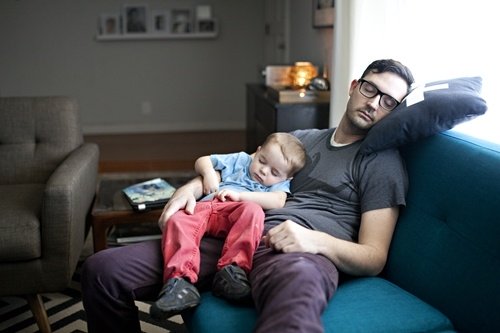- Help Center
-
1-800-774-7785Login

Blog
How OTs can help patients who have trouble sleeping

Sleep is one of those parts of life that you probably don’t give much thought to, until you have trouble getting some. Even missing a few hours in a night can completely ruin the rest of your day, causing problems at work and at home. Should the problem persist, it can greatly affect your ability to perform tasks and may even make it easier for other ailments to sneak up on you. In fact, a study published in Science Signaling found that sleep deprivation can actually affect memory retention at a chemical level.
There are a number of ways that occupational therapists can help their patients manage sleep deprivation and return to a more regular work and life schedule. Here are some strategies that OTs might implement to help their patients sleep easier:
For children
Children with developmental disorders may have trouble sleeping on a regular schedule, which in turn affects their parents’ ability to sleep well. This can lead to temperament issues across family members, as well as problems at work and school. According to the American Occupational Therapy Organization, therapists may use sensory tactics to help children fall asleep more easily. For example, something as simple as wearing looser or tighter pajamas may help children with developmental disorders feel more secure in their bed. In addition to sensory therapy, behavioral modification may be achieved by using consistent praise and rewards. New York University explained that therapists can help parents develop a relaxing and positive pre-bed routine, which may include visual checklists and songs.
For adults
The reasons for sleep disorders in adult patients are many, though OTs often deal with issues caused by physical trauma. A study found in the U.S. National Library of Medicine noted that people who experience post-traumatic stress disorder after a severe motor vehicle accident often have trouble falling asleep. In this case, an OT might supplement physical therapy treatments with homeopathic treatments. The University of Maryland noted homeopathic options for sleep disorders include arnica and aconitum, which may help those with panic-related sleep disorders.
Problems sleeping can be just as detrimental as other cognitive disorders or physical impairments, when it comes to returning to school or work. OTs can assist their patients with behavioral therapy, homeopathic treatments and sensory modification.
Read More Articles Like This
Latest Articles
- Travel Healthcare With Pets: How to Register an ESA
- Explore Like A Local: Free and Low-Cost Activities for Healthcare Travelers
- What to do if Your Travel Healthcare Contract is Cancelled
- Step Into the Unknown: Your First Travel Therapy Adventure
- Embracing the Adventure of Travel Therapy as an Empty Nester
